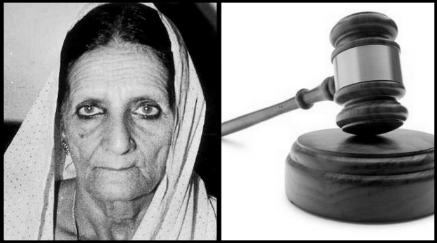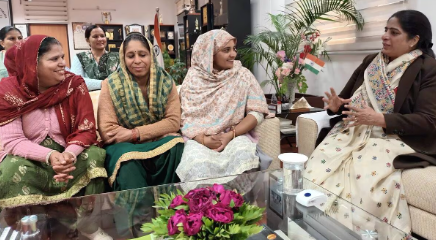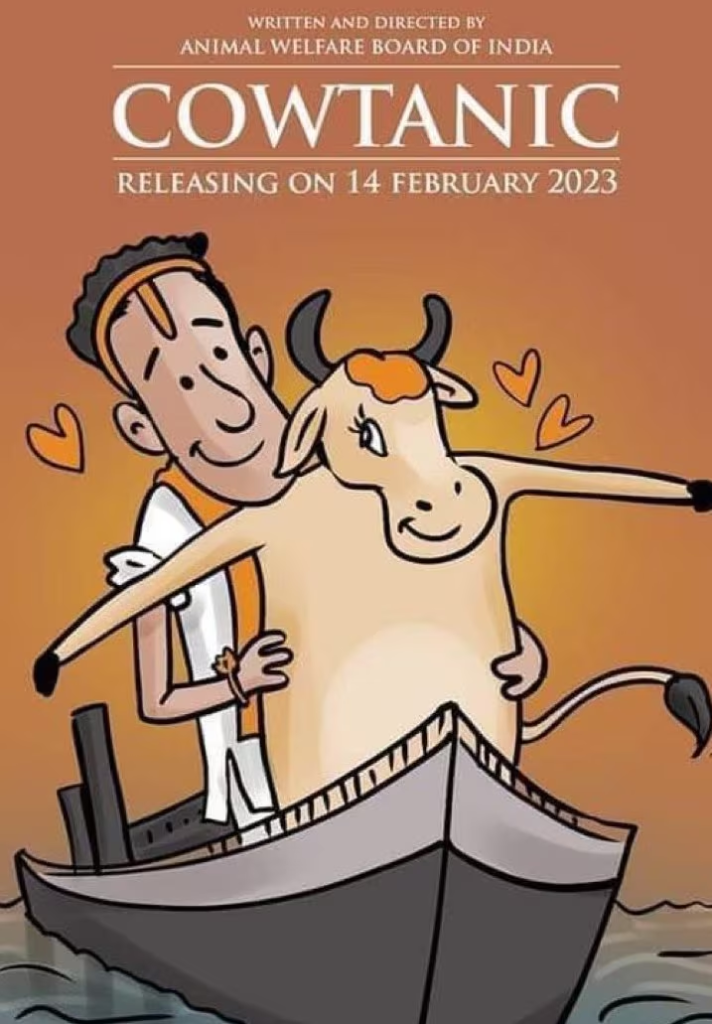
Source: PTI
That hardy perennial, the Uniform Civil Code (UCC), popping up with regularity ever since it was written as a desirable goal in the Constitution 74 years ago, has in the past few months been gaining traction.
A private member’s bill to implement it nationwide was listed for introduction in the Lok Sabha during the Budget session and comes just weeks after a similar one was introduced in the Rajya Sabha.
In January, the Supreme Court clarified that state governments indeed had the power to examine its feasibility.
Going back to July last year, a five-member committee headed by retired Supreme Court judge Ranjana Desai, met to consider a UCC in BJP-ruled Uttarakhand.
And ahead of the assembly polls in Gujarat, the state government in October cleared a proposal to set up a committee to implement a UCC. In April, in poll-bound Himachal Pradesh, the then BJP-ruled government said it would look into it.
As of now, Goa is the only state in India to have a UCC.

Common cause
A UCC has been a core ideological objective of the BJP for decades and finds place in its 2019 election manifesto.
At its heart is a proposal to implement a common personal law for all citizens.
At the time of Independence, different communities had been following their personal religious customs in matters relating to marriage, divorce, adoption and inheritance. The founding fathers and mothers left UCC as a “directive principle of State policy”, something that was eventually desirable but to be achieved when the time was right.
During the Constituent Assembly debates, it was the Left parties that pushed for a common code while the Right remained opposed to any attempt to codify Hindu law, explains Saumya Saxena, legal scholar and author, Divorce and Democracy: A History of Personal Law in Post-Independence India.
The codification of Hindu personal laws went ahead anyway in the 1950s, despite protests and opposition from the Hindu Mahasabha. Six different laws were passed between 1954 and 1958, codifying Hindu family law, banning polygamy, and introducing divorce as well as women’s right to inherit property.
Through the past decades the UCC has been seen as a potentially contentious issue, framed in terms of identity politics with minority religious groups opposing it and liberal thinkers arguing that it would force brute majoritarianism on minorities.
On Sunday, the All India Muslim Personal Law Board passed a resolution against a UCC saying it would deprive citizens of the privileges provided to them by personal laws.
Personal laws have changed even without a UCC

Source: ipleaders
In 1986, following the Supreme Court’s historic Shah Bano verdict the previous year in which it ruled that a Muslim husband was obliged to maintain his wife beyond the roughly three-month period mandated by Muslim personal law, the Rajiv Gandhi government brought in the Muslim Women (Protection on Divorce Act).
More recently, instant triple talaq, allowed under Muslim personal law, was challenged and changed through judicial intervention. Parliament followed through by making it a criminal offence.
Christian marriage and divorce laws have gone through amendments to reflect gender parity. Earlier, for instance, if women sought a divorce on the grounds of adultery, they needed to prove cruelty as well (men had only to provide proof of adultery). In 2001, this additional requirement for women was scrapped.
In 2017, the Supreme Court clarified that churches did not have the power to grant divorce decrees; only civil courts could do so.
In 2005, Hindu women were given the right to ancestral property. As recently 2020, the Supreme Court ruled that this right would apply retrospectively.
What will a common code look like?
In a country that has traditionally celebrated diversity, can there be a one-law-fits-all? “Globally, there is a move towards protecting diversity,” says Saumya Saxena who was an advisor to a 2018 Law Commission consultation paper set up to look into reform of family law.
“Secularism cannot be contradictory to plurality. It only ensures peaceful co-existence of cultural differences,” noted the Law Commission paper.
How, for instance, will a UCC accommodate the customary tribal laws of the north-east states which are promised and protected under the sixth schedule of the Constitution and where inheritance of property among the Garo and Khasi tribes in Meghalaya follows a female line of descent where the youngest daughter inherits?
In the end, the paper concluded that a UCC is “neither necessary nor desirable at this stage” and argued for reform of family laws of every religion through amendments and codification.
Keeping with the times

Source: Getty images
Going forward, can the UCC debate be reimagined to include gender rights and the rights of sexual minorities?
No religion grants equal status to women or recognises the rights of the LGBTQ community in the manner in which our Constitution guarantees these rights. “Various aspect of prevailing personal laws disprivilege women,” notes the Law Commission paper. “It is discrimination and not difference which lies at the root of inequality.”
Seventy four years after the Constitution was adopted, a new generation of citizens is increasingly demanding an ending to discrimination.
The demand for same-sex marriage is already in the courts.
The 2019 Transgender Persons (Protection of Rights) Act recognises intersex variations and provides protections against discrimination in education, employment and healthcare. But it has also been criticised for mandating legal gender recognition that lags behind more progressive laws elsewhere that allow transgender people to self-identify.
Polygamy and nikaah halala, an obnoxious practice under which a woman wishing to remarry a former husband must first have an intervening marriage that is consummated, has been languishing in the courts since the triple talaq matter when the judges said they didn’t have the time to take these issues up.

In numbers

Source: Ismat Ara/The Wire
Just four southern states, Tamil Nadu, Karnataka, Andhra Pradesh and Kerala account for 72% of all women employed in organised manufacturing, with Tamil Nadu alone accounting for 43%.
But female employment in manufacturing has been stagnant at 19.7% for two decades.
For every Rs 100 that a male worker earns, his female counterpart earns only Rs 87.06.
Source: Centre for Economic Data and Analysis, Ashoka University analysis by Dhruvika Dhamija.
Seen and heard

Source: Indian Express
“It is time that you lift your veil. Don’t let the men from your family attend your meetings.”
Vice chancellor Sudesh of the Bhagat Singh Women’s University in Sonepat, Haryana quoted in The Indian Express urged newly elected women sarpanches from nearby villages to push back on patriarchy in a state where 50% of seats in panchayats are earmarked for women but where often husbands function by proxy as “sarpanchpatis”.
Going places
Queen Beyonce lost out on best album—no black woman has taken that prize since Lauryn Hill in 1999–but made Grammy history with the most wins ever.

Source: Getty Images
Kim Petras and Sam Smith became the first transgender and non-binary winners for the best pop duo award. And Madonna, who presented that award to them, came under troll fire for the way she looks at 60. “Instead of focusing on what I said…many people chose to only talk about close-up photos of me,” she hit back.
But the surprise win of Sunday night’s awards was Shervin Hajipour’s Baraye, the song heard 40 million times within 48 hours of its September 29 release on Youtube, that took home a Grammy in a new special merit category that recognises social change.
I had written about it in an earlier newsletter, but if you haven’t yet heard Baraye, do listen now.
Cows not roses

Plans to celebrate February 14, a day generally known as Valentine’s Day, as “cow hug day” were abruptly dropped by the Animal Welfare Board. A circular dated January 6 by the board had asked the public to spend the day caressing cows in order to “make life happy and full of positive energy”. It launched a flood of memes on social media.
No reasons were given for withdrawing the missive.
From the courts
The dramatic swearing-in of Victoria Gowri
A last ditch effort by way of an urgent plea to stop the judicial appointment of Victoria Gowri for her purported hate speeches against Christians and Muslims, failed after the plea was rejected by a two-judge Supreme Court bench.
Within minutes in Chennai, Gowri was sworn in as an additional judge of the high court.
Gowri’s elevation was cleared by the collegium in January this year, and was swiftly ratified by the government.
Then came revelations in the public domain of Gowri’s past speeches and the filing of a plea challenging her appointment.
Justices Sanjiv Khanna and BR Gavai said a review of her candidature for judgeship after the collegium had already cleared her name would set a “very wrong precedent”. At this stage, they said, the only question was one of eligibility and not suitability.
But the controversy has opened a debate on the lack of transparency around the collegium system of appointing judges at a time when the government and judiciary have been sparring about judicial appointments.
SC to the aid of same-sex Kerala couple

Source: ANI
The woman had moved the Kerala high court seeking the whereabouts of her 23-year-old same-sex partner in a habeas corpus petition. Instead of asking for her to be produced in court (which is what a habeas corpus, literally “produce the body” is all about), the court asked legal service authorities to visit her in her home and suggested a few “counselling sessions”.
On Monday, the Supreme Court, acting on an appeal by the woman’s partner, asked for the woman to be produced in a family court and also stayed the high court’s order on counselling sessions.
…And tells Bilkis Bano , it will set up a bench “soon”
The Supreme Court has assured Bilkis Bano it would set up a bench “soon” to hear her plea against the remission granted to 11 men convicted of gang-raping her and killing seven members of her family, including her infant daughter, in the 2002 Gujarat violence. The men were sentenced to life imprisonment by a special court but walked free after serving just 14 years. Bano had in November last year challenged their remission in the Supreme Court but on January 4, justice Bela Trivedi recused herself from the bench.
The Good News

Anjali is among the 13 women drivers that were given the letter of appointment by the Delhi Transport Corporation (DTC) last month (Source: HT Photo)
The Delhi Transport Corporation is likely to recruit at least 100 more women bus drivers by the end of April. At present, Delhi has 34 women drivers (to its 15,000 male drivers), of whom all but one were hired over the past couple of years.
The women will likely be put behind the steering wheels of the fleet’s 8,000 new electric buses which it will get by 2025; 20% of the new buses will be operated by women.
…And more good news
A trans couple from Kerala whose pregnancy pics made a splash on social media have had a baby. Ziya Paval said her partner Zahad had given birth to the baby on Wednesday, a month ahead of the due date. The baby’s name and gender has not been revealed.
The long(ish) read
I stumbled upon this delicious article by Shashi Deshpande and simply have to share it.
Tracking her culinary journey from a “bumbling amateur” in her mother’s kitchen to finally making her peace with the complicated business of women and food, Deshpande’s delicate, layered piece explores the idea of the “good woman” that is tied in with the idea of a woman who cooks and cares and feeds her family.
Why are all women cooks, and all chefs men? Why do women eat last? And did Eleanor Roosevelt play a role in the execrable meals rustled up for her husband by the White House housekeeper?
All this, and more in the article published in On Eating, a multilingual journal on food and eating.
Read it here.
AROUND THE WORLD

Tiba al-Ali (Source: Twitter/@N00rAlanizi)
In Iraq, days after a 22-year-old YouTube star, Tiba al-Ali was strangled to death by her father over a “family dispute”, protests have broken out demanding a law against domestic violence, reports Al Jazeera. Domestic violence is not criminalised under law in Iraq. A draft bill was introduced in 2014 but lapsed amid widespread political opposition from legislators who said it would “erode Iraq’s social fabric”.
In North Korea, the public appearance of Kim Jong-Un’s 10-year-old daughter, Kim Ju-ae at a missile parade in Pyongyang, the fifth such appearance in the past three months, has reignited speculation that her father is preparing her as a future leader of the country, reports BBC.
North Korea has never been led by a woman, but why now? Perhaps her 39-year-old daddy is not in great health, goes the rumour mill.
The Church of England has said God has no gender and will be examining if the pronouns He/Him/His can be changed. But any change would have to be approved by the Synod, the church’s decision-making body.
What this means for the Lord’s Prayer and our Father is anybody’s guess.
| Were you forwarded this email? Did you stumble upon it online? Sign up here. |
| That’s it for this week. Do you have a tip or information on gender-related developments that you’d like to share? Write to me at: namita.bhandare@gmail.com. |